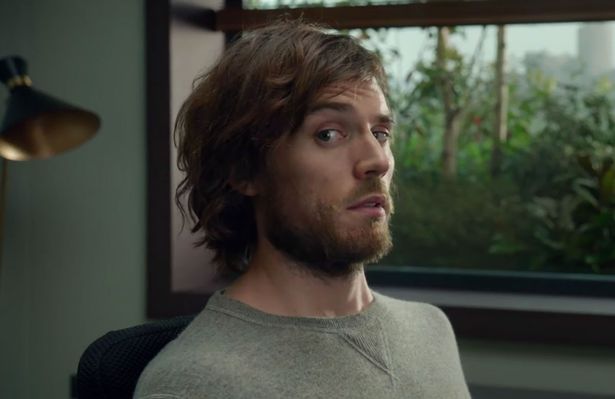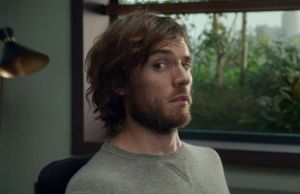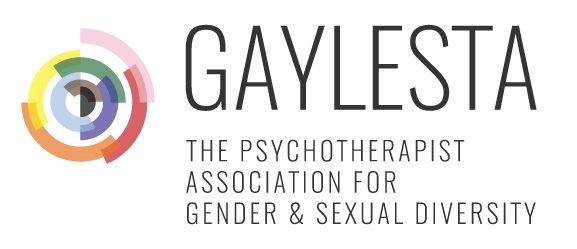This post was inspired by a radio interview I gave on June 16, 2016 with Matt Savinar; you can listen to it here (audio no longer available).
When I first saw the book “Me Before You” at the bookstore, with Emilia Clarke (Lou) and Sam Claflin (Will) on the cover, my first thought was, Oh, a story with a disabled romantic lead. That’s intriguing. Being a wheelchair user myself, I am always interested (and indeed, impacted) by the way disabled characters are portrayed. My next thought was of all the ways Hollywood and popular media tend to tell the stories of disabled people and characters: generally objectifying, nonsexual, and used as a plot device to tell a tale of dehumanizing tragedy or super-human inspiration (sometimes both; much had been said and written about “inspiration porn”). Not to mention the fact that these stories are almost never written or acted by disabled people. (Speaking of actors, can I say the stakes were raised for me a bit when I saw Daenerys Targaryen, Tywin Lannister, Finnick Odair, Clara Oswald, and Neville Longbottom in the same movie?) Given this very narrow representation, I was curious but skeptical about what this story (and especially its film adaptation) had to offer. I soon caught wind of criticism and protest through social media, and found that besides the usual stereotypes I expected, there was an even more harmful and insidious message underlying the film.
One of the main arguments that author Jojo Moyes has made, in response to criticism, is that this is meant to be one example of one person’s story and decision, not representing a whole community or population.¹ But a story does not exist in a vacuum. Disabled folks are underrepresented in popular media; that means that when there is representation, it has much more of an impact than you might otherwise expect. And once you realize that the vast majority of the few disability narratives out there emphasize tragic elements and outcomes, you should see why people might have a problem with yet another being brought forth.
The problems start from the ground up. Moyes, who also wrote the screenplay, was inspired by a news story she read of a young athlete who became paralyzed and decided to go to a clinic that performed assisted suicide. Rather than speaking directly with any disabled people for her research, she instead found what she needed on internet forums and Youtube videos of folks who have shared parts of their daily lives on the internet. Her most direct contact with disability was from extended family members with chronic illnesses. When considering herself in such a situation as her character, Will Traynor, she imagines herself feeling like a burden and embittered.² Obviously not a very positive or well-rounded position to tell a story from the point of view of a disabled person.
But that’s not what Moyes wanted to do anyway. The book, which has launched an otherwise mediocre career, is written from everyone’s perspective but Will’s. She says she “wanted his intentions to be one of the central tensions of the book.” ³ Undoubtedly she saw this as a clever twist to the common heteronormative romantic trope of the brooding unavailable male, lending a less common dimension of mystery. The problem with this is that disabled people exist as a mystery enough as it is. Here the mystery is bolstered by a process of exotification, medicalization, emphasis on fragility, and ultimately alienation from the other characters as well as the audience (basically all the usual assumptions and responses regarding disability). There is a great deal of discussion about Will and his predicament, but not a lot of discussion with him; his sullen attitude is a convenient excuse to give him less of a voice. Will’s nurse becomes the voice of authority on Will’s body, rather than Will himself.
And caring for Will’s body is a thankless job. In this story, it is the last one anyone would consider, even though it doesn’t require any experience or skills. Lou is treated terribly, and the only reason she stays is for the exorbitant compensation. In fact it’s rather explicit that Lou’s role as a social companion is the most important of her duties: she is hired by Will’s mother to “cheer him up.” Lou is naturally a giving type, and this goes into full effect when she learns of Will’s intention to end his life. This where I think the relationship becomes a bit pathological. Lou makes it her mission to “save” Will. First she does this as a friend, and soon she increases her efforts by allowing romantic elements into the process. She falls in love with the idea of being Will’s savior, and giving him a reason to live. It was clear to me that when he denies her this, her failure to save him broke her heart more than losing the person she loved. Her final plea for him to change his mind is, “I can make you happy.” As if that ever could have been her responsibility.
I want to add that I don’t think attendant relationships need to always be strictly professional—I have witnessed much love and affection grow between attendants and their employers. But when that happens, it comes from a sense of mutual respect. And I believe this is the real reason Will and Lou’s relationship fails; she does not respect him enough to be responsible for his own happiness, and he does not respect her enough to choose who should be her own partner/companion.
Of course, the reason why Will can’t let Lou choose him is wrapped up in his own beliefs about disability, as well as masculinity. Disability and emasculation are almost inextricable in this story. Will’s father says that he needs to “feel like a man again,” in reference to Will and Lou’s “dates.” Will himself sees their excursions as illusory, that they are pretending to be a couple enjoying themselves, putting on these roles until they inevitably return to his depressing reality. Will tries to invest what it means to him to “be a man” in Lou (perhaps another reason why he ultimately rejects her as a romantic partner) by getting her to be more like how he saw himself, but cannot accept or complete this vicariousness as long as he is alive. It’s his unwillingness to search beyond society’s narrow definitions of ability, masculinity, and productivity that saps his sense of worth as a human; to me, that is the true tragedy in this tale.
Similarly, sex is also referred to in a rather juvenile way. Lou’s boyfriend first assumes there must be no way for Will to have sex—and when Lou responds that it could work if the woman were to be on top, the boyfriend insinuates that Lou herself would never enjoy this (Lou doesn’t deny it, and we are left to wonder). It’s as if the writer had heard of another position besides missionary, but couldn’t quite imagine it being as effective or enjoyable. Later, as Will explains why Lou would continue the pattern of limiting herself by being with him, he laments his inability to sexually ravage her (“the things I would do to you…” he muses woefully). This is the most glaring example of this narrative being steeped in heteronormative ideals: the missionary position is the only way to have sex, penetrative or otherwise, and anything else is not worth imagining. Again, the writer failed in her research, because let me tell you, disabled people can and do have great sex in ways that would make you blush if you could imagine them.
And what of the movie’s tagline, Live boldly. Live Well. Just Live. and hashtag #liveboldly? #dieboldly would be just as appropriate if they were referring to Will—but it doesn’t really have a meaning in relation to him. It becomes clear by the end of the movie that Will is not really the protagonist of this story at all: this is Lou’s story. This is the story of Lou finding her place in life through Will’s death. And as distasteful as the idea is of Will sacrificing his life for Lou’s (as I believe the title “Me Before You” is meant to be taken), it became much worse when I realized that Lou, the actual protagonist, is the “Me” in the title. The tragedy is hers to overcome, not Will’s. The underlying message is that the life of “Me,” the beautiful, “normal,” able-bodied person that the majority of the audience identifies with, is more important than “You,” the other, the depressed, maladjusted, burden on family and society.
And why can’t Will see a place for himself in the world? Why can he only see his circumstance as an unacceptable misfortune? I found myself frustrated and asking these questions of him (as if the film was evoking that ableist meme, The only disability in life is a bad attitude, as it simultaneously showed there is only one attitude to take). Perhaps the answer is that when we look for stories about disability, we find ones like this. If Ms. Moyes truly cared for the population she chose to represent, she might have tried telling a story that lifts us up, rather than using disability as a plot device to depict another tiresome disability tragedy.
Astrological Insights (Extra Credit)

(Premiere time is approximate)
Let’s take a look at how this film embodies the archetypes of the times.
This film premieres during the Uranus-Pluto square (active between 2007-2020, 10° orb), a time of social (and sexual) uncovering and revolution. Disability justice has come more into the foreground of public discussion in the past few years, more often addressing sexuality, and this movie provides more grist for the mill with its popularity and ensuing criticism and protest.
Also occurring on the premiere date is the Sun-Venus conjunction completing a Grand Cross by forming up with the ongoing Jupiter-Neptune-Saturn T-square—a lot of tension between the archetypes involved. Saturn and Neptune combinations often have a tragic disillusionment about them, inviting dilemmas of ideals and reality; Jupiter lends optimism, exuberance, and celebration, not sweating the details; Sun and Venus add a pleasing exterior, a focus on relationships, and identification with relating and compromising. These elements come through very clearly in the content and creation of this film: the tragedy of ending a life not worth living (Saturn-Neptune); discovering the value of a relationship through its demise (Venus-Saturn); giving hope and meaning to loved ones left behind, celebrating martyrdom, and eliciting feelings of inspiration (Venus-Jupiter-Neptune); not realizing the negative impact this story could have on others (Venus-Jupiter); wrapped in the guise of a romantic comedy, serving the egos of the creators (Sun-Venus).
Also of note is Mars retrograde opposite the Moon and Mercury. Mars is the planet of action, passion, and conflict. The retrograde period offers a disruption in its expression, offering reevaluation and recalibration. Disability is a great Mars retrograde theme, because it causes us to consider they way we do the things we otherwise take for granted. Mars is also present in the way that the romance and references to sex do not go the usual route, nor flow with any sort of ease or satisfaction. This hindrance can be attributed to Moon/Mercury: the ideas and communication surrounding nurturance and dependence.
References:
¹https://www.washingtonpost.com/news/arts-and-entertainment/wp/2016/06/03/me-before-you-has-a-disabled-main-character-but-activists-are-angry-heres-why/
²https://www.irishtimes.com/life-and-style/people/it-s-an-impossible-conundrum-jojo-moyes-on-the-right-to-die-1.2657691
³http://www.penguin.com/read/book-clubs/me-before-you/9780143109464 (page no longer available)










3 thoughts on “Me Before Who?: A Breakdown of the Latest Popular Disability Yarn, “Me Before You””